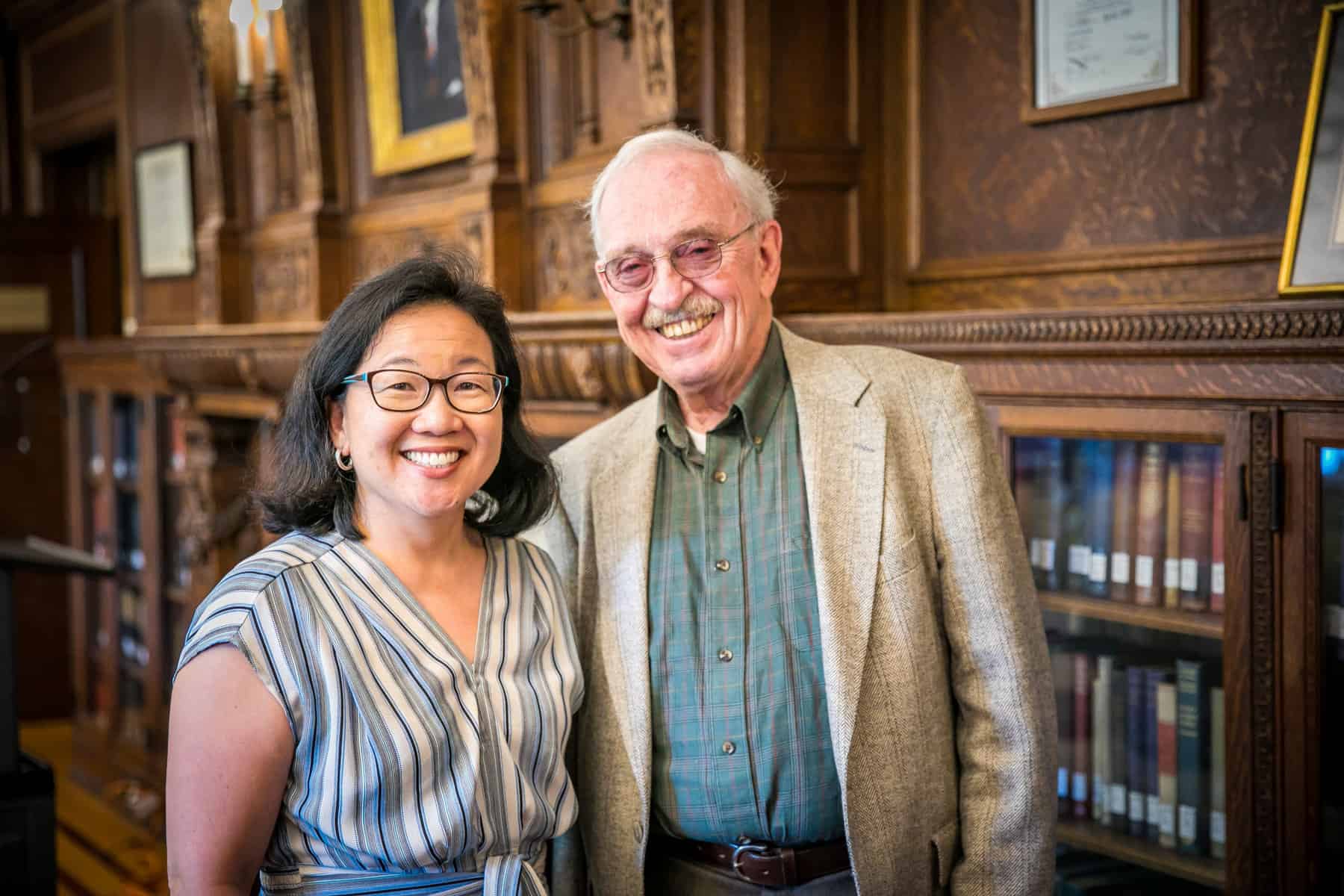Evangelicals for Social Action began with the Chicago Declaration of Evangelical Social Concern written over the Thanksgiving weekend in 1973. About 50 evangelical leaders–elders like Carl Henry, Frank Gaebelein and Vernon Grounds, and younger folks like Jim Wallis, Sharon Gallagher, John Perkins, Richard Mouw, and myself–spent two days wrestling with the widespread lack of evangelical engagement on social issues such as economic and racial justice, peace, and the dignity of women. Everyone at the conference, both young and old, agreed that biblical faith demanded that American evangelicals become much more engaged in issues of social justice.
The Chicago Declaration started with our central foundation: “As evangelical Christians committed to the Lord Jesus Christ and the full authority of the Word of God, we affirm…” From there, the statement went on to call evangelicals to a vigorous commitment to struggle against personal and structural racism, economic injustice, “the misplaced trust of the nation in economic and military might,” and men’s prideful domination of women.
The immediate response to the Chicago Declaration was stunning. There was massive coverage in both the religious and secular press. Almost everyone was surprised and many were delighted that evangelicals were ending a long silence and were now ready to launch a new movement of evangelical social action.
Evangelicals for Social Action (ESA) slowly emerged from this historical declaration. After several years of only annual meetings, ESA became a membership organization with full-time staff in 1978. Our basic sense of mission was to develop biblically solid materials and meetings to help evangelical Christians become much more deeply engaged on issues of social justice. (We focused on evangelicals because we were evangelicals, and that was where the need was greatest!)
In the next couple decades, ESA developed programs in many areas: working to end apartheid in South Africa; opposing our government’s support of the Nicaraguan contras in the 1980s; developing materials and workshops on global poverty; encouraging the emergence of Christians for Biblical Equality; launching an environmental program that became the Evangelical Environmental Network; working for racial justice. In the 1990s, ESA launched a program to help churches combine both word and deed. We hoped and prayed that vast numbers of American evangelicals would become part of a large movement that would work through both faith-based social service agencies and political engagement to make American society more just.
 But ESA (and related organizations) were soon not the only ones urging theologically conservative Christians to reengage politics. In 1979, Jerry Falwell formed the Moral Majority and led large numbers of fundamentalists into politics. In his run for the presidency in 1987-1988, Pat Robertson did the same for many charismatics and Pentecostals. Their agenda was significantly different from that of ESA. Whereas ESA believed biblical faith called us to a “completely pro-life” agenda, Falwell, Robertson and their colleagues tended to focus on a much narrower range of issues (especially abortion and marriage). And they identified more and more with the politically conservative part of the Republican Party. Increasingly, the media equated evangelicals with the “Religious Right.” And in 2016, 81% of white evangelicals voted for Donald Trump. And they have continued to support this twice divorced sexist, who had boasted of sexual affairs, stoked racism, promoted policies that largely benefit the richest 20%, ignored the overwhelming scientific consensus on global warming, and lied constantly, undermining democracy by dismissing anything he disliked as “fake news.”
But ESA (and related organizations) were soon not the only ones urging theologically conservative Christians to reengage politics. In 1979, Jerry Falwell formed the Moral Majority and led large numbers of fundamentalists into politics. In his run for the presidency in 1987-1988, Pat Robertson did the same for many charismatics and Pentecostals. Their agenda was significantly different from that of ESA. Whereas ESA believed biblical faith called us to a “completely pro-life” agenda, Falwell, Robertson and their colleagues tended to focus on a much narrower range of issues (especially abortion and marriage). And they identified more and more with the politically conservative part of the Republican Party. Increasingly, the media equated evangelicals with the “Religious Right.” And in 2016, 81% of white evangelicals voted for Donald Trump. And they have continued to support this twice divorced sexist, who had boasted of sexual affairs, stoked racism, promoted policies that largely benefit the richest 20%, ignored the overwhelming scientific consensus on global warming, and lied constantly, undermining democracy by dismissing anything he disliked as “fake news.”
Today the word “evangelical” in the popular mind has largely political connotations. For significant numbers of people, it signifies a right-wing political movement irrevocably committed to Donald Trump. Many young people raised in evangelical churches are turning away in disgust–abandoning evangelical churches and even sometimes the Christian faith itself. And the larger society thinks of evangelicals not as people committed to Jesus Christ and the biblical gospel but as pro-Trump political activists.

The result is that ESA increasingly found that our name failed to communicate who we really are. And it also led people to click off any message with that name before we had any opportunity to explain that the word evangelical is a rich theological term that refers to historic Christian orthodoxy and a commitment to Jesus’ gospel (the word comes from the Greek word, evangel, for gospel.) Because of a shameful history of white evangelical racism, the black church has long refused to use the term evangelical for itself even though its theology and piety are very close to what the word evangelical used to mean.
So after careful thought and prayer, we have decided to change our name–a little! Our new name is Christians for Social Action (CSA). We believe it will help us win a listening ear with more people. And it certainly will avoid people refusing to even take a minute to see who we are because they see a word that for many people immediately signals political folks.
But CSA still has the same biblical foundation and commitments as ESA. At CSA, we still stand firmly committed to historic Christian orthodoxy: the Trinity, Jesus as true God and true man, Jesus’ gospel of the kingdom as our central proclamation; trust in Jesus’ death on the cross as the only way to salvation; Jesus’ bodily resurrection on the third day. We believe that to change society, we need both transformed people and better societal structures.
We are still committed to working for justice for everyone. Andre Henry is leading a superb new CSA program combating racism called the Racial Justice Institute. (It is much better than anything we have had in the past!)
I have been so grateful to God for bringing Nikki Toyama-Szeto to us as CSA’s excellent leader. Since she joined us as our executive director in the spring of 2017, she has done a simply superb job. I have full confidence in her biblical vision and in her outstanding leadership. I am happy to continue on the board of CSA to support our tremendous team and continuing vision.
Ron Sider is the Founder and President Emeritus of Christians for Social Action.



12 Responses